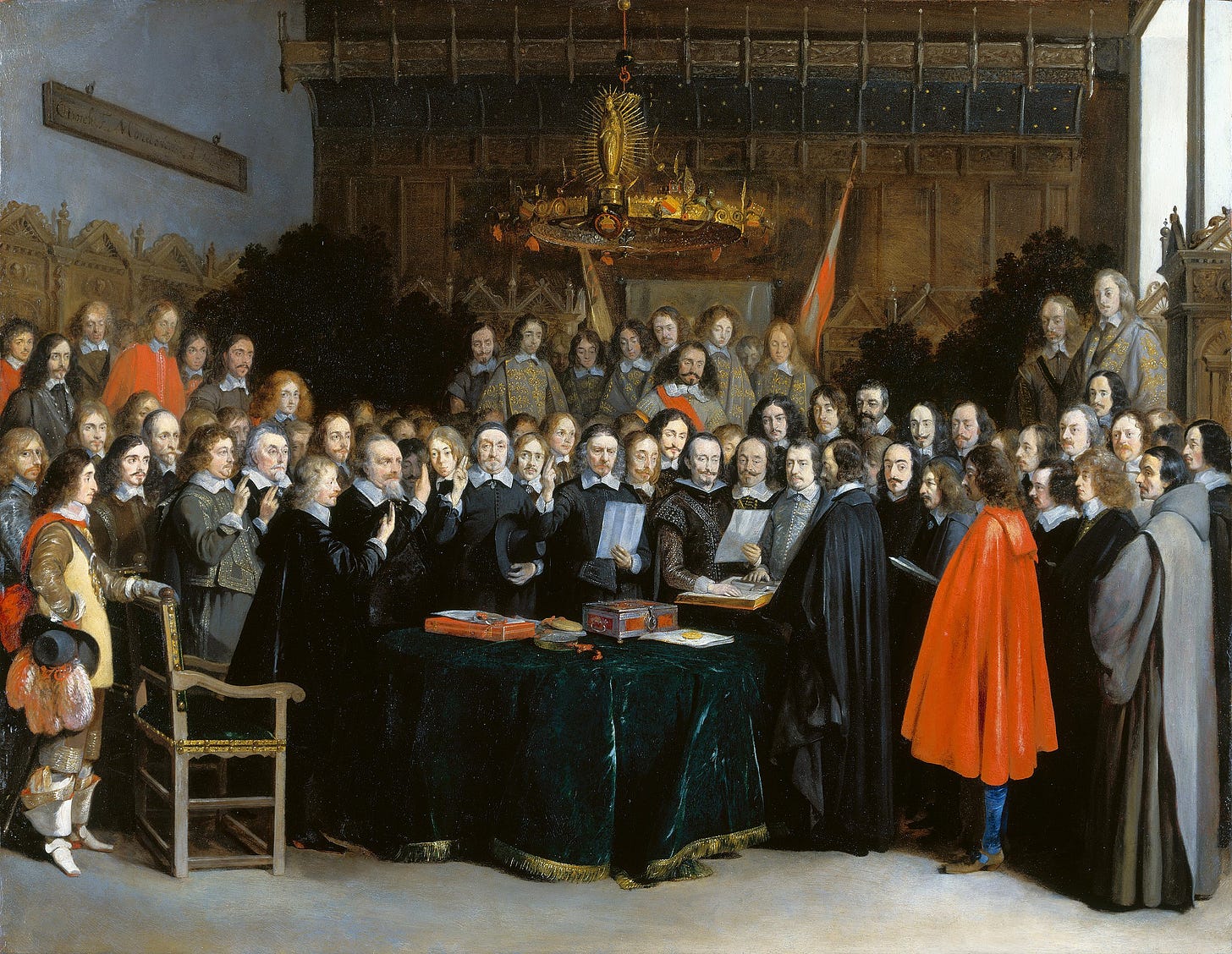Give Nation-States a Chance
A guest post by Roy Schwartz Tichon

The collapse of Bashar al-Assad’s regime has paved the way for the rise of Abu Mohammad al-Jolani, a development that evokes both cautious optimism and grave concern for Syria’s future. While all reasonable people yearn for stability and prosperity, the ongoing massacres of unarmed civilians—Sunni and Alawite communities along the coast, and more recently the Druze in the south—remain deeply troubling. These horrors, though they may prove temporary, expose the deeper danger of imposing artificial unity on deeply divided, multi-ethnic societies.
This fundamental challenge dates back to the Sykes–Picot Agreement of 1916, when Britain and France arbitrarily divided the Middle East into artificial states, with little regard for ethnic, sectarian, or tribal realities. These unnatural borders, largely unchanged more than a century later, continue to haunt the region—fueling cycles of instability, violence, and human suffering. Syria, like its neighbors Iraq and Lebanon, has repeatedly illustrated the tragic consequences of ignoring ethnic identities and cohesive cultural foundations in state-building.
Perhaps the most vivid illustration of Sykes–Picot’s failure is the Kurdish tragedy. With over 30 million people, Kurds are considered the largest ethnic group globally without their own state. Unlike many other minorities, the Kurds reside in a geographically contiguous region spanning parts of Turkey, Iraq, Iran, and Syria. Across these countries, they have suffered systematic oppression, cultural erasure, and violent crackdowns for generations. The establishment of a Kurdish nation-state would represent a long-overdue correction to these persistent injustices.
History consistently demonstrates that states rooted in shared cultural and ethnic identity tend to be more stable and governable. Post-war Europe offers valuable examples: after 1945, many European states reorganized along clearer lines, sometimes involving significant population transfers, but ultimately contributing to long-term stability and sound governance. Though imperfect, this model has proven more enduring than today’s romanticized—yet often dysfunctional—experiments in artificial multiculturalism.
Ethnic and cultural cohesion is not a luxury—it is a prerequisite for lasting order, whether in the Middle East or the West.
Critics often point to Scandinavia as an ideal model of stable, prosperous governance. Yet its success arguably derives more from deep cultural cohesion than from superior policy design alone. Indeed, as Sweden has become less culturally cohesive in recent decades—ironically due, in part, to an influx of Syrian refugees fleeing their fractured homeland—many argue that its social stability and overall performance have declined. Moreover, even in affluent European countries like Belgium, ethnic fault lines between Flemish and Walloon communities have created persistent political instability. Ethnic and cultural cohesion is not a luxury—it is a prerequisite for lasting order, whether in the Middle East or the West.
Historical evidence suggests that multi-ethnic states in the Middle East—such as Lebanon, Syria, and Iraq—functioned most effectively under strong authoritarian regimes or when a clear Christian majority shaped national identity, as was once the case in Lebanon before Palestinian leadership was pushed there by neighboring Arab states in the late 1960s and early 1970s. Both Iraq and Lebanon have also suffered profoundly from foreign interventions by Iran, Israel, Syria, and the US-led coalition, further undermining their stability. Still, even absent foreign meddling, such multi-ethnic constructs have seldom thrived on their own.
Idealists—including myself—may dream of a borderless world where cultural distinctions are dismissed as arbitrary, but such dreams ignore the deep roots of identity in human nature and history. Yet reality demands pragmatism. History affirms that men not only cherish their ethnic and cultural roots—they will fight and die for them. Attempting to coerce entire populations into ideological experiments detached from reality is both profoundly dangerous and morally indefensible.
Western countries often advocate for a unified Syria not because it is inherently the best solution, but out of bureaucratic convenience, self-interest in expelling Syrian refugees from Europe, and ideological inertia. The West’s insistence on imposing its abstract ideals on cultures it barely understands has yielded tragedy after tragedy—borne, always, by the most vulnerable. Such an approach is not merely misguided; it borders on moral recklessness, especially when even in the West, these very ideals more often than not fail to create lasting ethnic and cultural harmony.
History affirms that men not only cherish their ethnic and cultural roots—they will fight and die for them.
Redrawing borders is admittedly complex, involving significant risks such as minority protection, economic stability, resource allocation, potential border disputes, and the reality of moving populations. Population transfers historically have led to suffering and displacement, and their ethical implications are substantial. Yet, despite these serious short-term challenges, we must acknowledge that the potential long-term stability, peace, and prosperity gained might outweigh these temporary hardships.
Unlike many other ethnically-fractured states, Syria presents a uniquely practical opportunity for partition. Its various ethnic and religious groups—Kurds in the northeast, Alawites along the western coast, Sunnis dominating central and eastern regions, and Druze communities in the south—are already geographically concentrated. These natural divisions make Syria particularly well-suited for a carefully managed separation.
While the solutions are not yet fully clear, we must begin speaking frankly about political arrangements grounded in ethnic, religious, and cultural realities. The tragedies in Syria demands that we confront—rather than evade—the uncomfortable questions about identity, sovereignty, and the human cost of forced unity. It is time we give nation-states a chance.
Roy Schwartz Tichon, MPP ’25 is an Israeli writer and entrepreneur.


Insightful essay. While redrawing state boundaries based on cultural or ethnic identity is generally impractical, when opportunities to draw or redraw borders present, such identities must be considered. People are tribal. It is likely in our DNA.